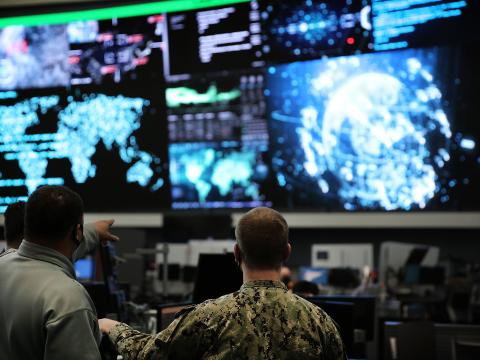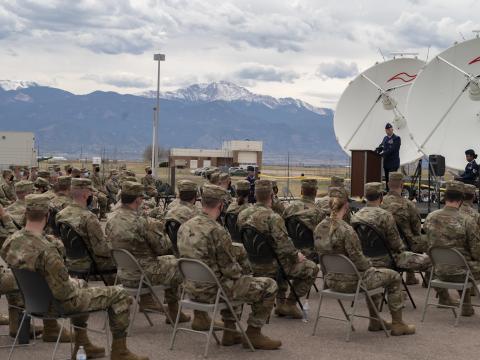The Five Pillars of Netcentricity
In "Network Operations Mandate Critical Considerations," Lt. Gen. Harry D. Raduege Jr., USAF (Ret.) outlines and explains his "pillars of netcentricity," which are communications infrastructure; security, including privacy and cybersecurity; information management, governance, and leadership. These pillars are so important, he continues, because as organizations face the challenges of continued streamlining, as resources continue to dwindle even as security demands continue to grow. With all this in mind, what key elements for effective and efficient network operations pose the greatest challenge for defense agencies?
In "Network Operations Mandate Critical Considerations," Lt. Gen. Harry D. Raduege Jr., USAF (Ret.) outlines and explains his "pillars of netcentricity," which are:
- Communications infrastructure
- Security, including privacy and cybersecurity
- Information management
- Governance
- Leadership
Today, many organizations are benefiting from the power of netcentricity and its controlling element-effective NetOps. By the very nature and vulnerability of modern information networks, we know that effective NetOps must be achieved throughout any organization from the corporate office all the way to the tactical edge users. Even with the growing realization of what NCO and NetOps can provide, chief information officers and other information network professionals are being asked to do more with less. The importance of NetOps continues to grow in the face of decreasing manpower and budgets, network consolidations and significant cybersecurity issues, even during wartime. As a case in point, my son, Lt. Col. Chad Raduege, USAF, is a communications squadron commander in a mainstream Air Force combat unit. Because of increased mission responsibilities amid mandated manpower reductions over the past two years, Col. Raduege has consolidated various NetOps work centers into a more general "event management" operation with specialists trained in multiple disciplines. They provide 24-hour coverage including standby technicians at their homes with a workforce reduced by 35 percent while routinely deploying to and from combat support operations in Iraq and Afghanistan. The leadership and management challenges in such a setting are significant. However, successful NetOps are allowing Col. Raduege and others in the public and private sectors to succeed. But how much added mission, reduced manning and slashed budgets can be sustained? Failure to coordinate governance decisions regarding the five pillars results in capability disconnects and disjointed operational effectiveness. Certainly there is a point of diminished returns where no more expansion and squeezing can be tolerated for effective NCO.Read the whole column here. So, with all this in mind, what key elements for effective and efficient network operations pose the greatest challenge for defense agencies?



